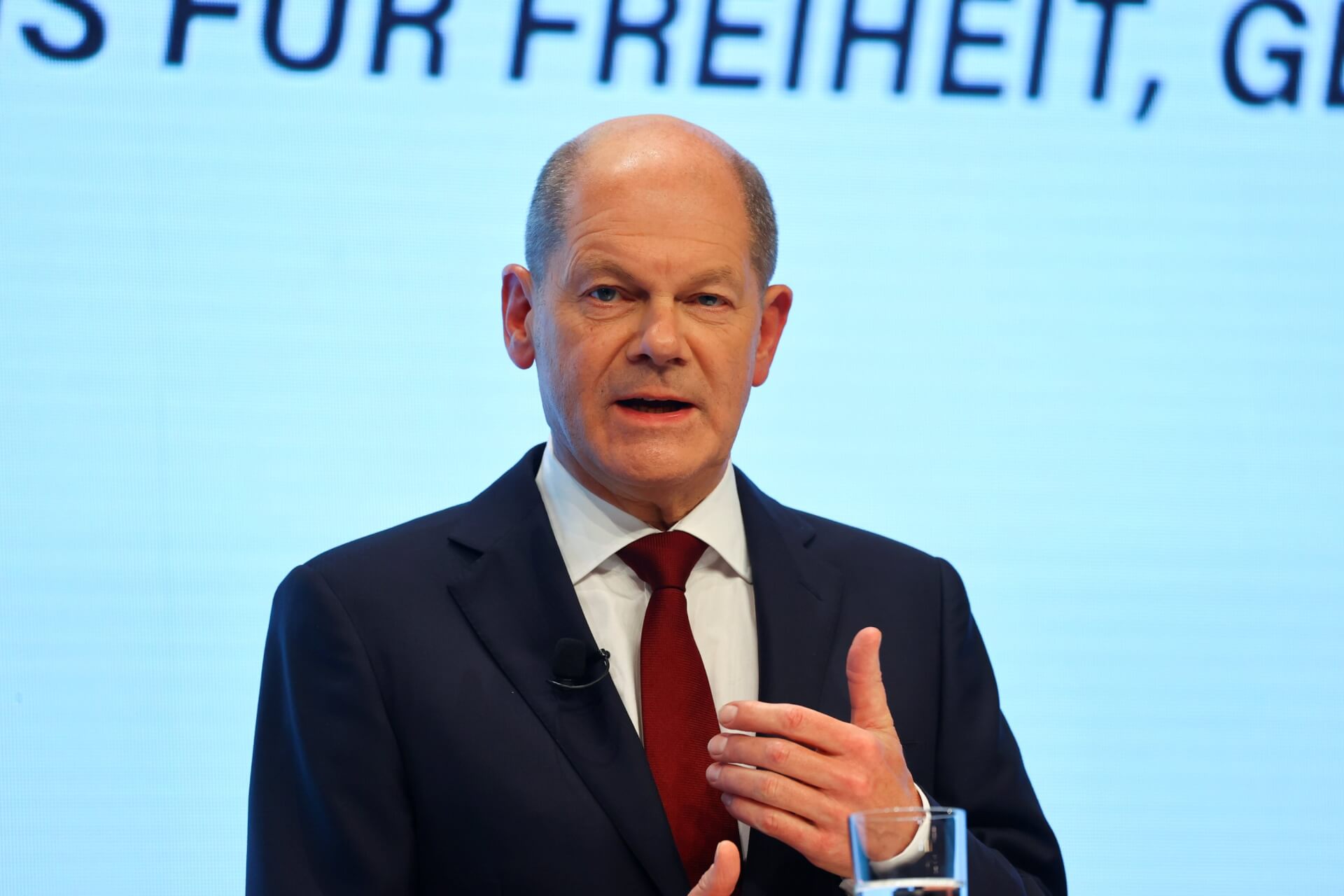The Parliament will officially elect Olaf Scholz as the next German Chancellor on Wednesday, after the Green Party agreed to enter into a coalition with Scholz’s Social Democratic Party (SPD) and the Free Democrats (FDP). Scholz will replace Angela Merkel, who decided not to contest the federal elections after serving as the Chancellor for 16 years. However, he will need the support of at least 369 lawmakers in the 736-seat lower house to attain the top job.
Scholz led the SPD to victory against Merkel’s conservative Christian Democratic Union (CDU)-CSU bloc in the September elections.
The new “traffic light coalition” aims to modernise Europe’s biggest economy by promoting measures to fight climate change and introducing more liberal social policies.
Heute stimmen wir in der @spdde über den Koalitionsvertrag ab. Wir treten ein für eine lebenswerte Zukunft, für mehr Respekt, für Fortschritt. Wir wollen eine Regierung bilden, die das Land nach vorne bringt. Der Aufbruch für die Zwanzigerjahre ist möglich. #PackenWirEsAn! pic.twitter.com/8F1qtYO6RO
— Olaf Scholz (@OlafScholz) December 4, 2021
Green Party co-leader Annalena Baerbock, who is expected to become Germany’s first female foreign minister, said, “We are going into a strong new government, with a very strong and diverse Cabinet, with a strong tailwind from the ballot.”
The Green Party has been awarded several positions in the new cabinet, including the vice-chancellor, the minister of economy and climate protection, the foreign minister, the minister for family affairs, and the minister for the environment. Likewise, the SPD will have portfolios for the interior ministry, defence, labour and social affairs, health, development, construction, housing, and the Chancellor. Meanwhile, FDP leader Christian Lindner will become the finance minister.
#Germany's liberal FDP approves coalition government.
— EHA News (@eha_news) December 6, 2021
▪️Liberal Party of Germany has approved, in a landslide majority, the "traffic light" coalition agreement reached with SPD and the Greens at a party conference. pic.twitter.com/KfFqqY2XMC
It has been reported that Scholz hopes to push forward the most significant industrial modernisation to fight climate change. Additionally, on Monday, Scholz unveiled the country’s first gender-balanced cabinet, with women holding key positions and portfolios. “That corresponds to the society we live in—half of the power belongs to women,” he proclaimed.
For the first time ever, all key ministries related to foreign policy and domestic security will be led by women in Germany. From top-left to bottom-right: Annalena Baerbock (Foreign), Svenja Schulze (Development), Christine Lambrecht (Defence), Nancy Faeser (Interior). pic.twitter.com/3bkRdGWEIK
— Marcel Dirsus (@marceldirsus) December 6, 2021
Scholz also seeks to hold a vote on mandatory vaccinations before the year ends, amid the emergence of Omicron, a new variant of COVID-19. Scholz has chosen Karl Lauterbach, an epidemiologist and one of the prominent voices in Germany’s fight against the pandemic, as the health minister. He picked Nancy Faeser and outgoing Justice Minister Christine Lambrecht for interior and defence portfolios.
The SPD, FDP, and the Greens held several coalition negotiations following the September elections. On November 24, the parties presented their plans titled ‘Dare more progress’ in Berlin. The coalition aims to serve as an “alliance for freedom, justice, and sustainability.” The plans include: a minimum wage of €12 ($13.55) per hour; affordable housing, capping rent increase, and constructing new houses; establishing a new ministry for construction and including climate protection in the Ministry of Economics; legalising the recreational use of cannabis; and lowering the voting age to 16.

